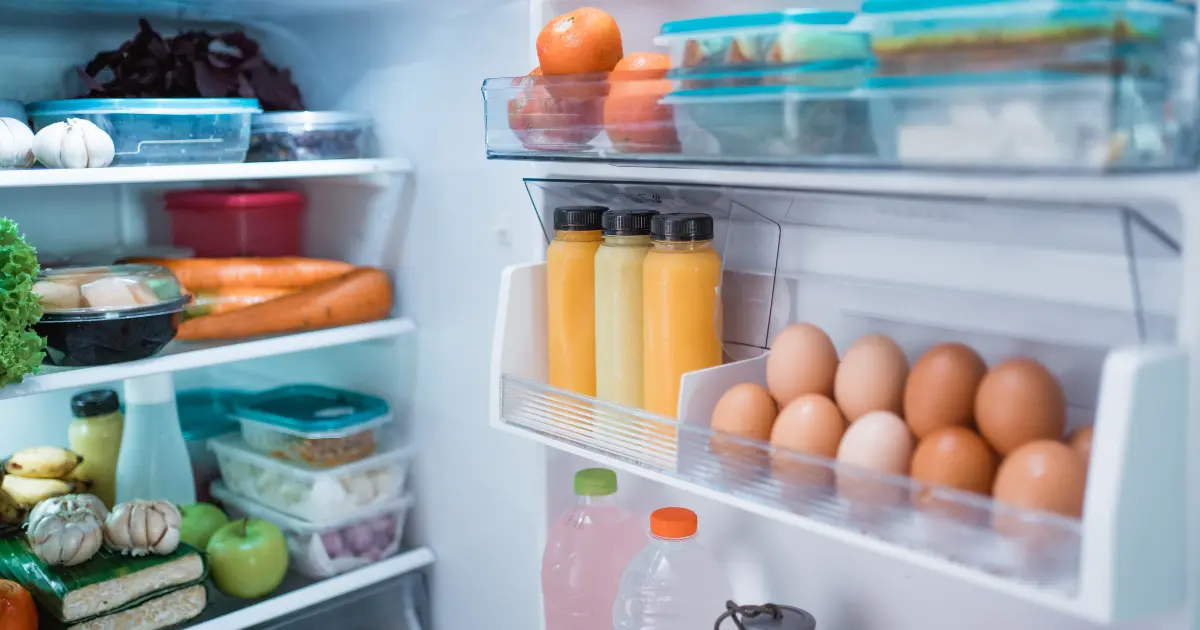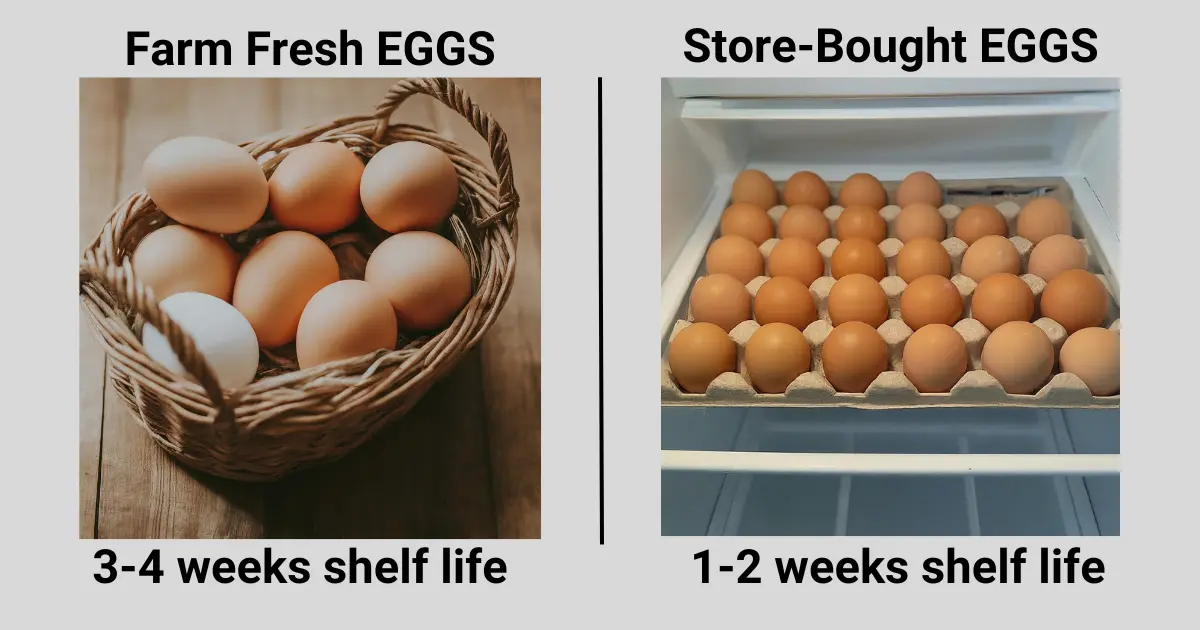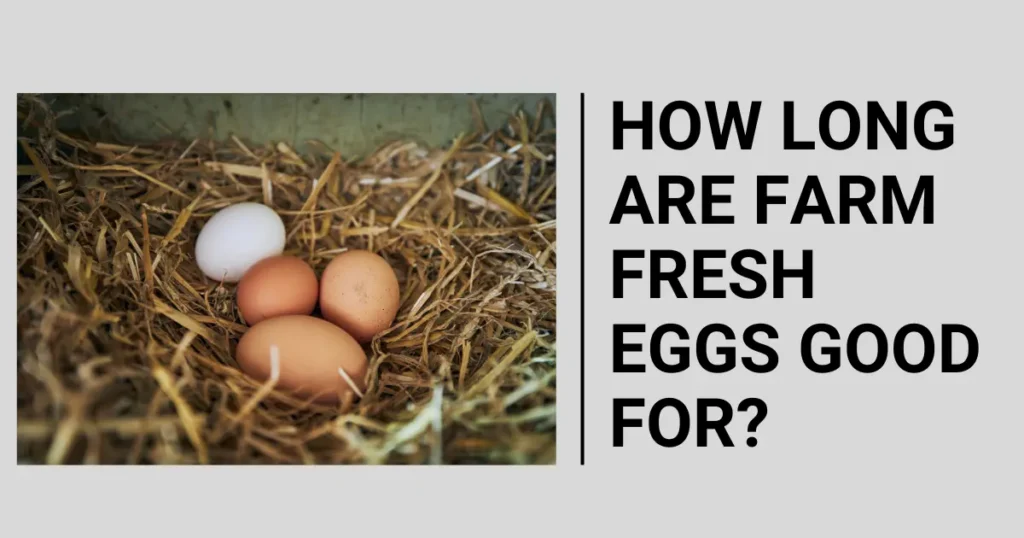Farm-fresh eggs are a kitchen staple, packed with protein and nutrients. But how long are farm fresh eggs good for? It’s a question as old as hens themselves.Generally, farm-fresh eggs can stay fresh for up to three weeks when refrigerated. But if you’re lucky enough to have a cool, dry pantry, they might last even longer – up to six weeks. Understanding when your eggs are at their peak freshness is key to enjoying their delicious flavor and nutritional value.
Where to Put Those Precious Eggs

To maximize the freshness of your farm-fresh eggs, proper storage is key. The fridge is your egg’s best friend. Keep your eggs safe and sound in their original carton. For optimal freshness, place the carton in the coldest part of your refrigerator. This chilly spot will help them stay fresh for up to three weeks.
But wait, there’s more! If you’re lucky enough to have a cool, dry pantry, your eggs might just be able to withstand a longer stay. In these conditions, they can last up to six weeks. However, once you open that carton, it’s best to refrigerate them to prevent spoilage.
Factors Affecting Freshness
Several factors can affect the freshness of farm-fresh eggs. These include:
- Temperature: Eggs should be stored in a cool, dry place. The ideal temperature for storing eggs is 40 degrees Fahrenheit or below. To know more about storing the eggs check the article linked below:
- Humidity: Eggs should be stored in a humid environment. This will help keep your eggs fresh and prevent them from drying out.
- Light: Eggs should be stored in a dark place. Light can cause the eggs to deteriorate.
- Handling: Eggs should be handled with care. Avoid cracking or damaging the eggshells.
How to Store Farm-Fresh Eggs
To store farm-fresh eggs, follow these tips:
- Refrigerate: Store eggs in the refrigerator in the original carton.
- Date: Write the date on the carton when you purchase the eggs.
- Use by: Use the eggs within the recommended storage time.
- Separate: Separate eggs when needed. Do not return the yolks or whites to the shells.
- Wash: Wash eggs before using them. To know more about washing the farm fresh eggs check the article linked below:
Comparing Farm Fresh vs. Store-Bought Eggs

A comparative table helps illustrate the differences:
| Aspect | Farm Fresh Eggs | Store-Bought Eggs |
| Shelf Life | Up to 3 weeks | 4-5 weeks |
| Storage Temperature | Coldest part of the fridge (below 40°F) | Refrigerator (below 45°F) |
| Processing | Minimal | Washed, sanitized, and graded |
| Nutritional Value | Higher in nutrients | Slightly lower due to processing |
| Taste | Richer flavor | Standard flavor |
How to Tell If Eggs Are Fresh
There are several ways to tell if eggs are fresh. These include:
- Appearance: Fresh eggs have a clean, smooth shell. The yolk should be round and firm.
- Smell: Fresh eggs have a mild odor. Old eggs may have a strong, unpleasant odor.
- The Egg Float Test: Want to know if your egg is still fresh? Try this classic trick. Fill a bowl with water and gently lower your egg in. If it sinks to the bottom, it’s fresh and ready to use. But if it floats to the surface, it’s seen better days and should be tossed.
Additional Tips
- Cooking. Thorough cooking will help eliminate any potential bacteria.
- Use eggs within a few days of purchase. This will help to guarantee peak freshness.
- Freeze eggs. You can freeze eggs for later use.
Cracking the Egg Timer
So, there you have it! With proper care, your farm-fresh eggs can be a delicious and nutritious part of your diet for up to three weeks. By understanding how to store them and recognizing signs of spoilage, you can enjoy every egg to its fullest. Happy egg hunting!
Additional Resources



